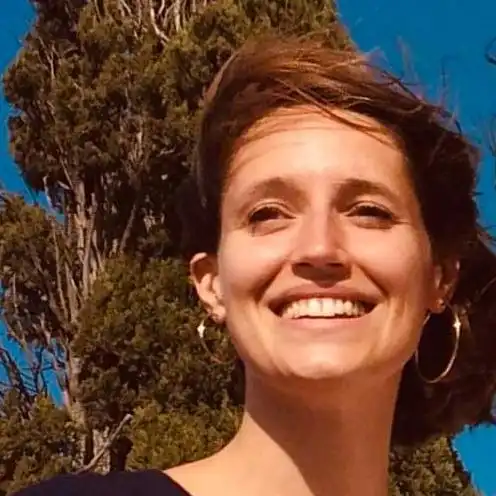Home>Graduate profile: Noémie Fompeyrine
29.10.2025
Graduate profile: Noémie Fompeyrine

Noémie Fompeyrine graduated from the Master Governing the Large Metropolis at Sciences Po's Urban School and is currently Head of the Sustainable Food Division for the City of Paris.
WHats is your current role?
I am head of the Sustainable Food Division at the City of Paris. My role is to supervise the team responsible for public policy on sustainable food and agriculture. We coordinate the overall strategy for the transition of the food system, which aims to provide access to healthy and sustainable food for all, as well as the structuring of sustainable, local supply chains in the Seine basin, through the Territorial Food Project (PAT). We are also leading the transition to sustainable collective catering for the 28 million meals served each year in the City of Paris's 1,300 restaurants, as part of the Sustainable Food Plan (PAD). Finally, part of the team manages the Ferme de Paris, a municipal farm that practises mixed farming and livestock breeding in accordance with the principles of agroecology and animal welfare. It welcomes 50,000 visitors a year and raises public awareness of the challenges of sustainable agriculture and food.
How does your work contribute to the ecological transition?
The ecological transition is at the heart of my work! It is the common thread running through the public policies we pursue, because our food system contributes to exceeding planetary boundaries: climate change and ocean acidification, biodiversity loss, land use change, freshwater use, and changes in biochemical flows. Food policy also enables us to combat food insecurity, improve farmers' incomes, and contribute to generational renewal. It also contributes to animal welfare, overall health, and the resilience of the local economy. And with this systemic approach, we kill ten birds with one stone! The use of sustainable, fair trade, and organic products, the greening of our plates, the elimination of plastics, the relocation of supply chains, and the fight against food waste: all of this contributes concretely to ecological transition and social justice, and on top of that, we get to share meals that are both tasty and healthy.
What are the key takeaways from your time at the Urban School?
The Master Governing the Large Metropolis (GLM Track) at the Urban School gave me a solid theoretical grounding in economics, political science and sociology, which I use every day to analyse the context in which I work (theory and management of commons, territorial governance issues, sharing of roles and powers between actors, etc.) but also practical knowledge (cartography, quantitative methods, local finance) that enables me to use the tools more effectively. I believe that during my master's degree, I developed my critical approach, my ability to devise strategies, and to innovate. Studying in English, with theoretical references and classmates from all over the world, was a real opportunity. I realise this today when I interact with counterparts or international city networks with ease and a common vocabulary. Of course, I will never forget our study trip to Moroccan cities (Casablanca, Tangier) or the collective project for the French Development Agency, which took me to Maputo in Mozambique. These experiences gave me a method of investigation, an ability to analyse and adapt, and some wonderful memories!
Information Sessions: Masters

Find out more about the Masters programs and the wide choice of specialisations offered by the 8 Schools of Sciences Po during our webinars dedicated to applicants.
Career Hub
Employers: discover our students' credentials

Agility, curiosity, open-mindedness: recruiters look for the qualities that characterise our students. To meet our graduates or post a job offer, visit the Sciences Po Careers website